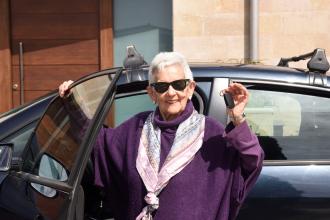Is DriveABLE workABLE?
Recently two friends who are seniors were retested for their driver’s licence. I know they both have excellent ICBC records and are as alert and aware as I would hope to be in my 80s. But they failed the test.
Recently two friends who are seniors were retested for their driver’s licence. I know they both have excellent ICBC records and are as alert and aware as I would hope to be in my 80s. But they failed the test. The disconnect between what I know and the test result led me to research the test, DriveABLE, on line.
DriveABLE is software developed from a University of Alberta grad project that is being marketed to driver’s licence authorities in Canada and elsewhere. It professes to assess the cognitive ability to drive of people who have medical issues or who are aging. It replaces a more complete doctor’s assessment and road test.
The DriveABLE test takes the ability to competently drive and divides it into six factors, one of which is memory, for which it has a 5-minute computer-generated test. This test has been cherry-picked from another test of memory from an unnamed source. The other five factors have been similarly cherry-picked from other unnamed sources. So one might ask, what kind of memory: long-term, short-term, visual? Statistically, one 5-minute computer test is meaningless to assess such a complex subject. How many red flags so far?
DriveABLE’s own studies are endlessly expounded, but there are no published studies with dates and authors, only generalizations and, of course, 99% accuracy! I have found only one third-party assessment of DriveABLE on the web, by Monash University Accident Research Centre in Australia (MUARC), with a link to the study at an Austroads site.
You will note from the abstract that the two other tests compared were “clearly superior” to DriveABLE, and that DriveABLE had a more than one in five misdiagnosis rate. Red flags?
The DriveABLE test involves sitting in front of a touch-screen computer with three extra buttons at the bottom. Most seniors being tested this way are unfamiliar with computers, touch screens, and computer-generated visuals. If they fail, they are told so within 2 minutes by a clerk. There is no appeal; the licence is revoked on the spot. You can retest after 6 months for $200. Imagine being told you are cognitively deficient, not by your doctor but by a clerk.
At a misdiagnosis rate of more than one in five, this test is not scientific. It verges on being arbitrary and is hurting seniors. Doctors need to take back the responsibility for this type of medical assessment.
—G. Turnbull
Whaletown, Cortes Island

